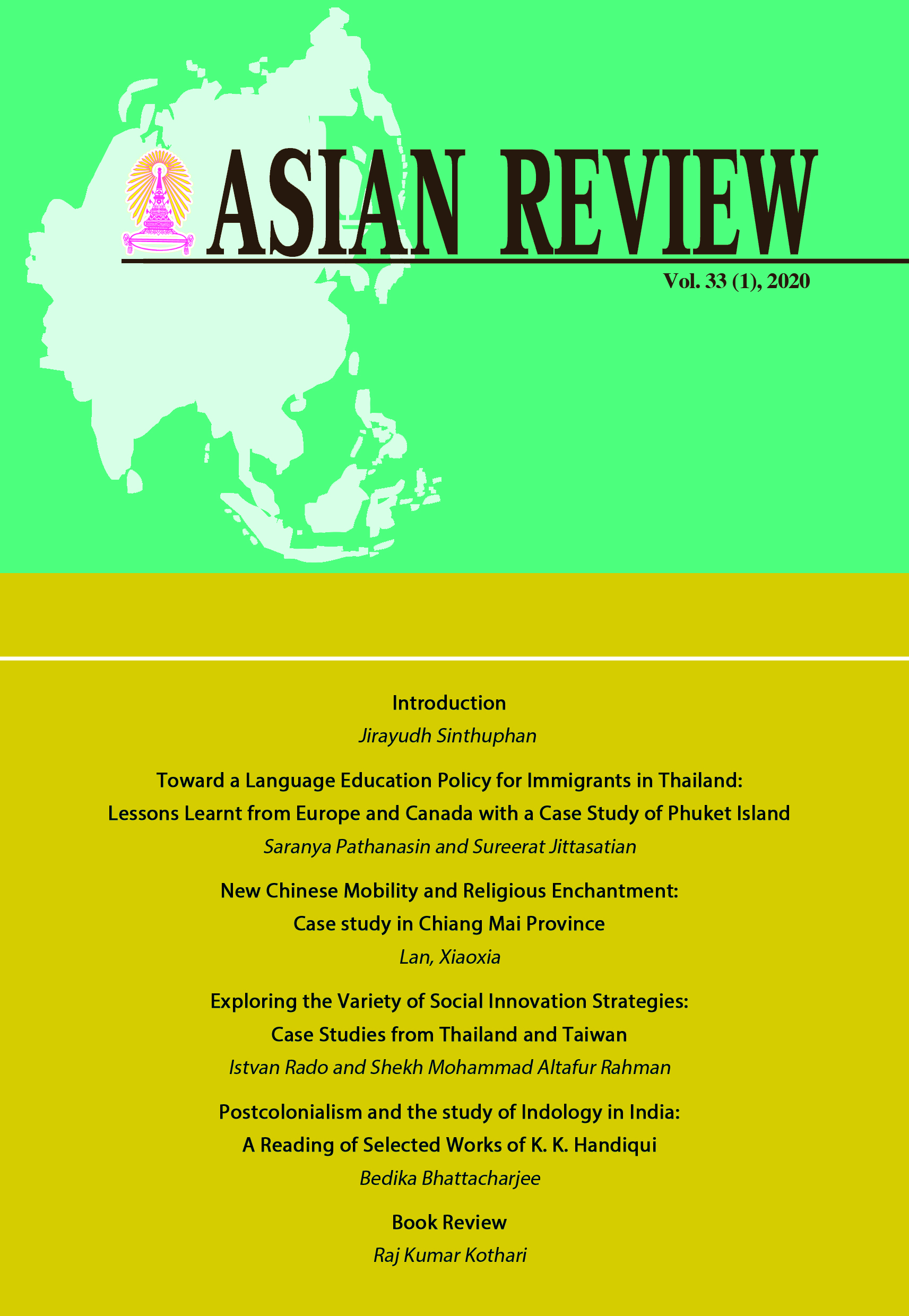Postcolonialism and the study of Indology in India: A Reading of Selected Works of K. K. Handiqui
Keywords:
Postcolonialism, Indology, K. K. HandiquiAbstract
Postcolonialism as a field of studies has not only evolved as a mean to understand the process of control and exploitation of colonizers, but it has also posited counter-readings to the existing colonial discourse that has long dominated the colonized mind. Postcolonial counterreadings operate through various means and agencies such as myths, legends, language, history, science, mathematics, culture, art etc. The primary task of such postcolonial counter-readings is to posit a kind of resistance and an anti-imperial stance to ideological constructs that colonialism has offered. This article looks at this kind of anti-imperial stance in the field of Indology in India. It hypothesizes that Indological research can also be considered an important genre in postcolonial studies as it posits an anti-imperial stance to the existing colonial discourses. In connection to this, a notable body of scholarship by K. K. Handiqui, an eminent Indologist of twentieth century Assam, India proves to be a significant area of study and research where elements of postcolonialism can be traced.
References
Cuddon, J. A. 2014. Dictionary of Literary terms and Literary Theory. London: Penguin Books.
Dandekar, R. N. 1977. “Some Trends in Indological Studies.” Annals of the Bhandarkar Oriental Research Institute 58-59: 525–541. Accessed April 9, 2019. http://www.jstor.org/stable/41691725.
Gogoi, Ahalya. 2003. Prācyavidyārnava Krishna Kanta Handiqui. Guwahati: Anundoram Borooah Institute of Language, Art and Culture.
Gogoi, Ahalya. 2011. Krishna Kānta Handikai Aru Naiṣadhacaritar Jiliṅgani. Guwahati: Smt. Ahalya Gogoi..
Gogoi, Ahalya. 2014. Krishna Kānta Handikai Āru Yaśastilakar Reṅgan̩i. Guwahati: Smt. Ahalya Gogoi.
Goswami, Malinee. 2018. Krishna Kanta Handiqui: Life and Works. Dibrugrah: Publication Division, Dibrugarh University.
Handiqui, Krishna Kanta. 1965. Naiṣadhacarita of Śriharṣa. Poona: Deccan College Postgraduate And Research Institute.
Handiqui, Krishna Kanta. 1968. Yaśastilaka And Indian Culture. Sholapur: Jaina Sanskriti Sangrakshak Sangha.
Handiqui, Krishna Kanta. 1976. Pravarasena’s Setubandha. Ahmedabad: Prakrit Text Society.
Malhotra, Rajiv. 2016. The Battle for Sanskrit: Is Sanskrit Political or Sacred? Oppressive or Liberating? Dead or Alive?. New York: Harper Collins. Google Books.
McGetchin, Douglas T. 2009. Indology, Indomnia, and Orientalism: Ancient India’s Rebirth in Modern Germany. Madison: Fairleigh Dickinson University Press.
Nayar, Pramod K. 2010. Contemporary Literary and Cultural Theory: From Structuralism to Ecocriticism. Delhi: Pearson.
Pattnaik, Devdutt. 2016. “Four Types of Indology.” February 22 . Devdutt, https://devdutt.com/articles/four-types-of-indology/
Said, Edward. 2001. Orientalism: Western Conceptions of the Orient. New Delhi: Penguin Books.
Said, Edward. 2001. “Orientalism Reconsidered” Reflections on Exile and Other Literary and Cultural Essays. New Delhi: Penguin Books.
Sattar, Abdus. 1975. Krishna Kanta Handiqui. Jorhat: Granthapith.
Spivak, Gayatri Chakraborty. 1999. A Critique of Postcolonial Reason: Toward a History of the Vanishing Present. Cambridge: Harvard University Press.
Thiongo, Ngugi, W. 1986. Decolonizing the Mind: The Politics of Language in African Literature. Nairobi: East African Educational Publications.
Downloads
Published
How to Cite
Issue
Section
License
Published articles are under the copyright of the Instiute of Asian Studies, Chulalongkorn University. Partially or totally publication of an article elsewhere is possible only after the consent from the editors.







